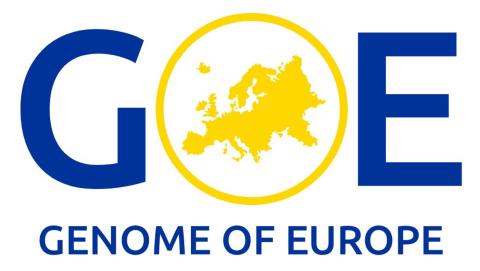
European people are living longer, but the length of their healthy, disease-free lifespan is not increasing in line with overall longevity. Disease prevention is in a disadvantageous position in most countries (using less than 1% of the health care budget) compared to diagnostic and treatment activities. As a result, Europe has too many patients and health care costs are increasing. This is a problem that will only get worse in years ahead, presenting future coping issues for health care systems due to a lack of population-based disease prevention.
One approach to alleviate the problem has been initiated by the EU’s DG Connect, which launched “The 1+ Million Genomes (1+MG) initiative.” 1+MG has the potential to improve disease prevention, enable the development of more personalised treatments, and support groundbreaking research. On April 10, 2018, during the Digital Day event, 25 EU countries, along with the UK and Norway, signed the Member States’ declaration aimed at strengthening efforts to establish a European data infrastructure for genomic data and implementing common national rules enabling federated data access.
Using genomic data in population healthcare at large scale is the most novel aspect of the whole initiative. To achieve the planned goals, a series of projects have been initiated, among which we’d like to highlight the following:
Genomic Data Infrastructure (GDI) – Started in 2022 and co-funded under the Digital Europe programme, it marks the beginning of the scale-up and sustainability phase of the 1+MG initiative. GDI is the main vehicle for infrastructural implementation, establishing a federated, sustainable, and secure data infrastructure for genomic and clinical data access across Europe.
Genome of Europe (GoE), part of which is Genome of Bulgaria (GoBG) – Started in 2024 and also co-funded under Digital Europe, this project aims to build a European network of national, population-based genomic reference cohorts, with an end goal of at least 500,000 citizens.
The Genome of Europe project, launched in October 2024, will initially provide the whole genome sequences of 100,000 people across European countries. These reference cohorts will be selected to be representative of the European population, with the number of sequenced individuals in each country corresponding to that country's population size.
Importantly, each country will aim to generate a proportional number of genomes for population subgroups, representative of the ancestral groups that live there. This is essential, since genetic variation is known to have ancestry-specific properties, and disease prevention strategies may only be effective when developed in the context of these ancestral differences. Above all, citizens of all nationalities deserve equal access to effective, genomics-informed healthcare.
For example, Estonia must sequence not only Estonians but also Russians living in the country. In this manner, each participating country will establish a population cohort that reflects the genetic composition of its population. The country will then connect this data into the European cohort, thus establishing a collective European reference dataset.
One important outcome of the Genome of Europe project will be a boost to our ability to predict which people are likely to develop certain diseases. So-called “polygenic risk scores” (PRS) will be instrumental in catching diseases early and perhaps even preventing them from occurring, by enhancing existing screening programs. This can only be realistically achieved in all European populations by first building the European reference genome.
All these activities will put Europe in an independent and leading position worldwide. In the light of the current global situation, there is a pressing need for an independent, expert institution in Europe — along the lines of the European Molecular Biology Laboratory (EMBL) — dedicated to advancing genomics. This role can be filled by the 1+MG initiative and its supporting projects.


